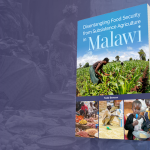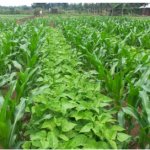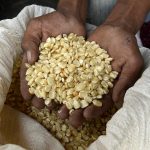Abstract It is common for farmers, civil society organizations, government officials and journalists to accuse traders of ‘exploitative behavior’ and ‘price gouging’ in the post-harvest season. Yet, the evidence on which such accusations are made is largely anecdotal, as government efforts to collect and report farmgate prices are often patchy and inconsistent. In this […]
Book: DISENTANGLING FOOD SECURITY FROM SUBSISTENCE AGRICULTURE IN MALAWI
Malawi's agricultural sector needs to be less subsistence-focused, more market-centered, and more concentrated and specialized to reliably feed all Malawians.
Virtual Brown Bag – July 7, 2021: Disentangling Food Security from Subsistence Agriculture in Malawi- Book Launch
Abstract: Malawi’s many smallholders rely heavily on rainfed, low-input subsistence farming to meet their food needs. Yet for most rural Malawian households, subsistence agriculture cannot consistently produce enough food to ward off hunger. Nor can they rely on the country’s weak markets to buy additional food they may require or to profitably sell their agricultural […]
IFPRI Malawi Maize Market Report April 2021
The Monthly Maize Market Reports are developed by researchers at IFPRI Malawi, with the main goal of providing clear and accurate daily maize price data in selected markets throughout Malawi. The reports are intended as a resource for those interested in maize markets in Malawi, namely producers, traders, consumers, or other agricultural stakeholders. Highlights • […]
Virtual Brown Bag- May 19, 2021: Does Connectivity Reduce Gender Gaps in Off-farm Employment? Evidence from 12 low- and middle- income countries
Abstract: Gender gaps in labour force participation in developing countries persist despite income growth or structural change. We assess this persistence across economic geographies within countries, focusing on youth employment in off-farm wage jobs. We combine household survey data from 12 low- and middle-income countries in Asia, Latin America, and sub-Saharan Africa with geospatial data […]
- « Previous Page
- 1
- …
- 63
- 64
- 65
- 66
- 67
- …
- 79
- Next Page »





